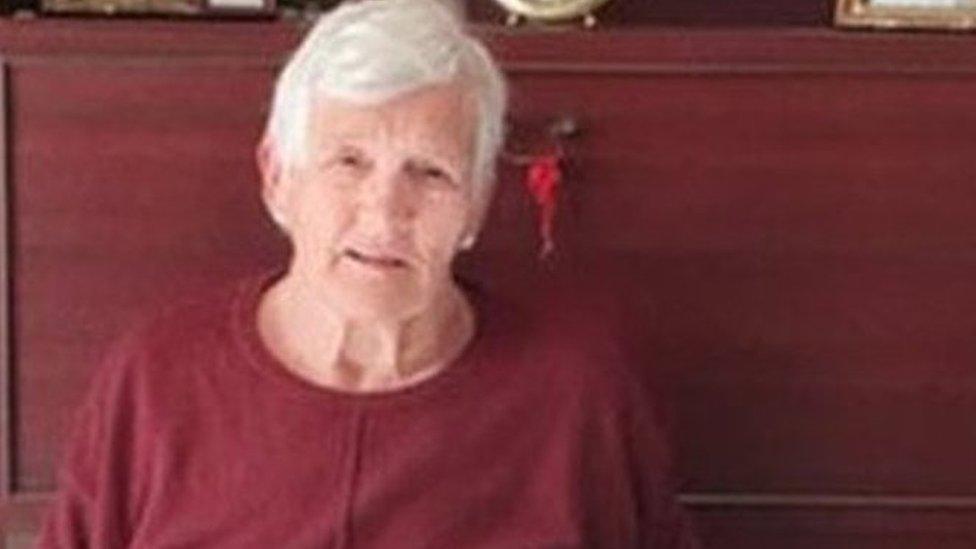NHS delays: Avoidable blindness fears over eye care waits
- Published
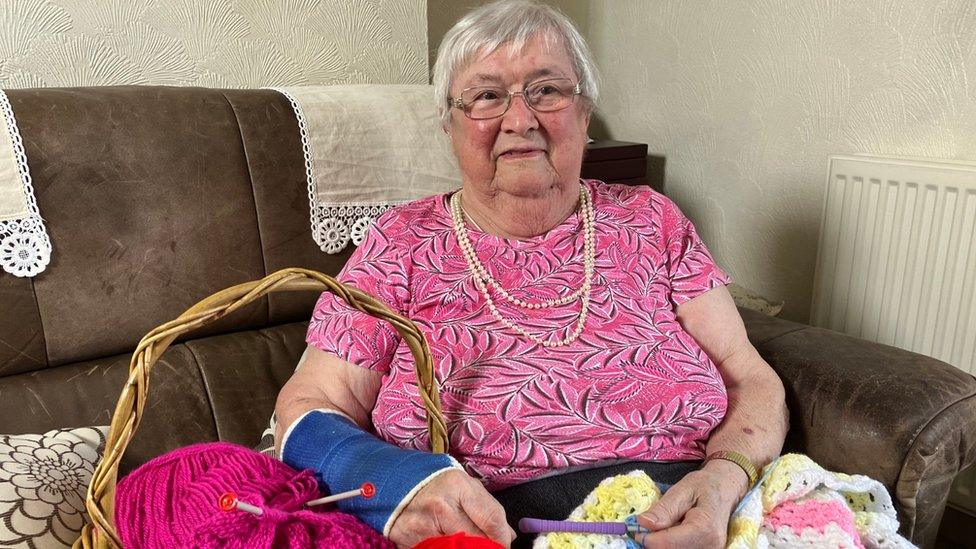
Loveday Williams has been waiting 11 weeks for treatment but she used to receive her injections at four-week intervals
A "tide of avoidable blindness" could sweep Wales if eye care services are not reformed, a consultant has said.
Gwyn Williams, of the Royal College of Ophthalmologists, said waits for key treatments were "the biggest they've ever been".
Patients told BBC Wales how their sight has worsened while waiting longer than usual for injections.
Health Minister Eluned Morgan said she "puts her head in her hands" every night over the state of the Welsh NHS.
She said she was trying to "get things back on track" and "keep focused".
The Welsh government said access to eye care was being improved with new mobile theatres and community clinics.
Mr Williams told BBC Wales Live the main areas of ophthalmology with "harmful delays" in Wales were macular degeneration, glaucoma and diabetic eye disease.
Latest data shows that more than half of the planned 133,000 appointments for the highest risk eye patients were significantly overdue.
Macular degeneration affects the middle part of people's vision and can get worse if untreated.
"Your eyesight just gets poorer and poorer," said Loveday Williams, 90, from Neyland, Pembrokeshire, who has received regular injections to manage the condition for the last 20 years.
She had previously received them at intervals of four or six weeks but in recent months they have become much longer with the latest, due this week, having taken 11 weeks.
"Looking at things, the TV especially... you notice you have to get closer and closer," she said.
"My knees are nearly touching the table."
She said treatment was the "difference between seeing and not seeing and the thought of not seeing is just terrifying".
"To think of me sitting in the chair not able to see or do anything, it doesn't bear thinking about really," she said.
"I couldn't live on my own if that was the case."
'Constant worry'
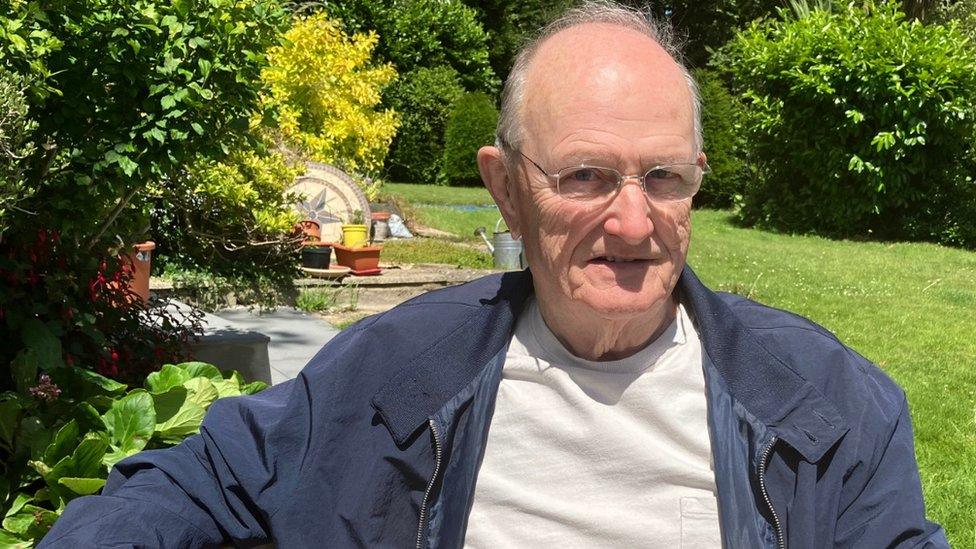
Neil Chandley's treatment intervals have increased from every four weeks to 17 weeks
Neil Chandley, 81, from St Florence in Pembrokeshire, has had left "gaps" in the vision of his left eye after being diagnosed with macular degeneration three years ago.
Injections were initially every four weeks, then at six week intervals but, over the last year, he has had waits of 12 and 17 weeks.
He said his vision was good for "up to about six weeks" after the injections and then it began to decline.
"It's going to take longer each time to restabilise the eye because of the gaps between injections," he said.
"And it will tend to accelerate the fact that you will lose the sight of that eye if it's not done on a regular basis."
Mr Chandley said losing his sight was a "constant worry" as he loved reading, gardening and going for walks.
"I still like to be very much part of my family and be able to do things and restrictions with your eyes are going to affect that," he said.
Andrew Carruthers, from Hywel Dda University Health Board, responsible for Ms Williams and Mr Chandley's care, said there had been "significant demand" in its macular degeneration service due to new referrals, the impact of Covid and the "resulting disruption of services and staffing" which has led to a "backlog of demand".
"We are working with clinical experts and operational teams to try to reduce the backlog as soon as is practicably possible," he said.
Why is there a long wait?
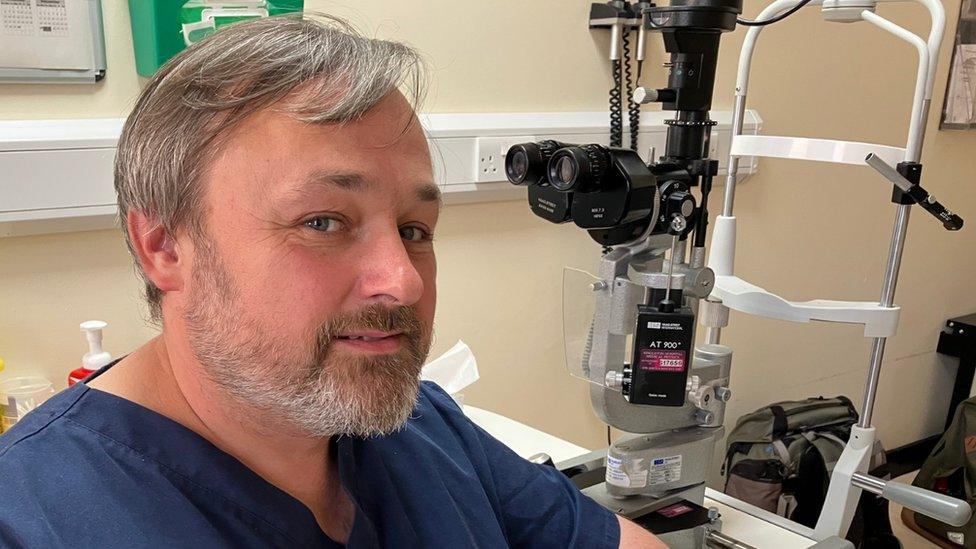
Consultant Gwyn Williams wants to see "proper action to solve these difficulties"
Mr Williams said Wales did not have enough consultant ophthalmologists and must reform the system as recruitment was difficult.
That includes training non-medical practitioners to do work traditionally done by doctors, like giving injections, reviewing patients after injections, and preparing people for cataract surgery.
He also called for the role of optometrists to be expanded and for the establishment of three eye care centres of excellence in Wales.
"If we don't take permanent, proper action to solve these difficulties I cannot see how the functioning health service can continue," he said.
"Without solving these problems we are at risk of many people in Wales needlessly going blind."
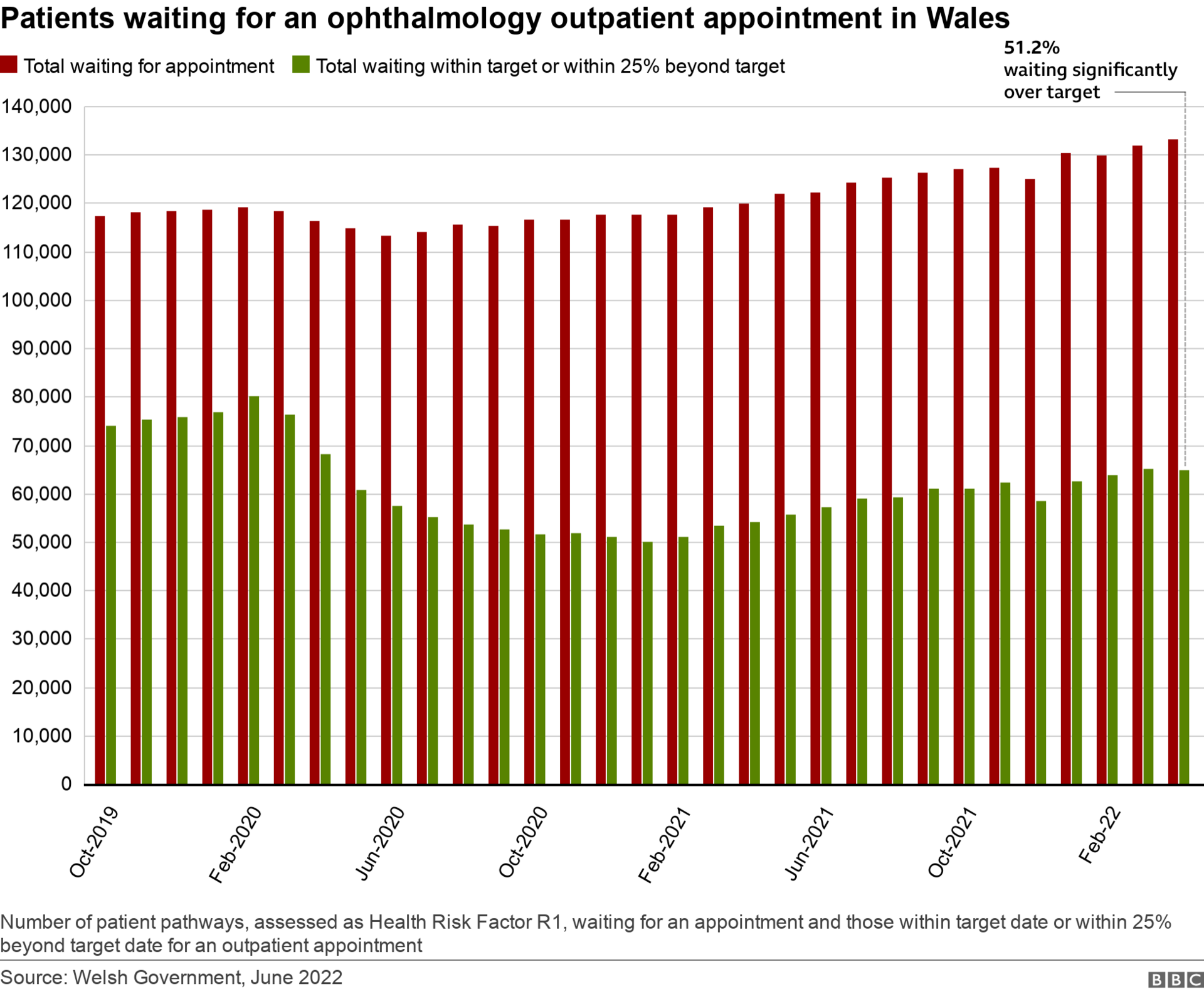
In an interview, the health minister said the Welsh government had been "asking our consultants to prioritise patients to make sure that we're seeing the most urgent cases in the fastest way possible".
She said she hoped these delays "will come down much, much quicker" as Covid restrictions have eased.
She added: ''I go home every night and put my head in my hands. It's really tough, it's very difficult.
"It is absolutely our responsibility to try and get things back on track as quickly as we can."
The Welsh government said health boards were undertaking "innovative work" to improve access to eye care, including new mobile theatres.
It said some cataract procedures were also being outsourced to private providers "to clear the current waiting lists".
"The NHS Wales University Eye Care Centre is also helping to train a future sustainable workforce by providing specialist learning opportunities for optometrists from across Wales while seeing more patients and reducing the waiting list," it said.
Wales Live is on BBC One Wales at 22:35 and then on iPlayer
- Published11 April 2022

- Published20 June 2021
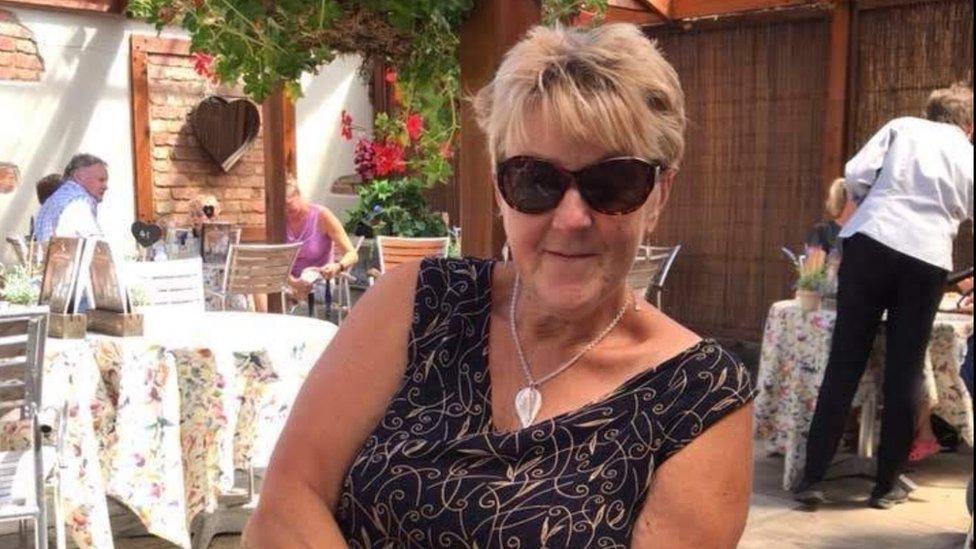
- Published8 May 2022
